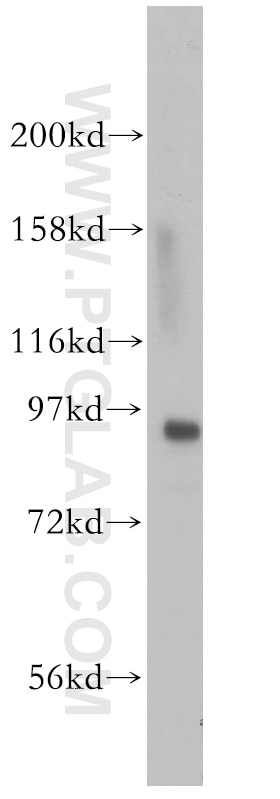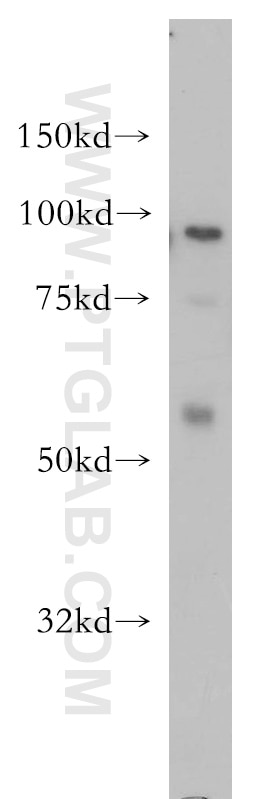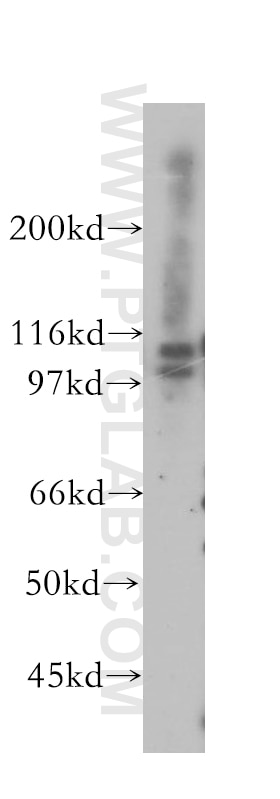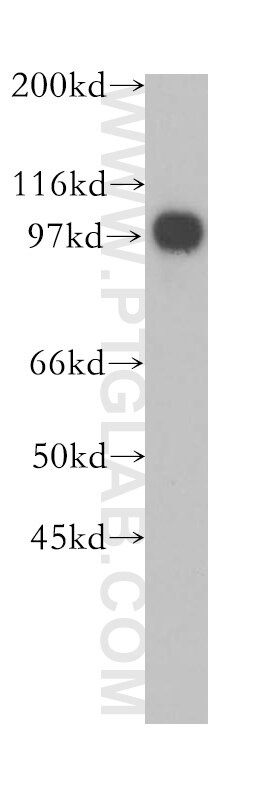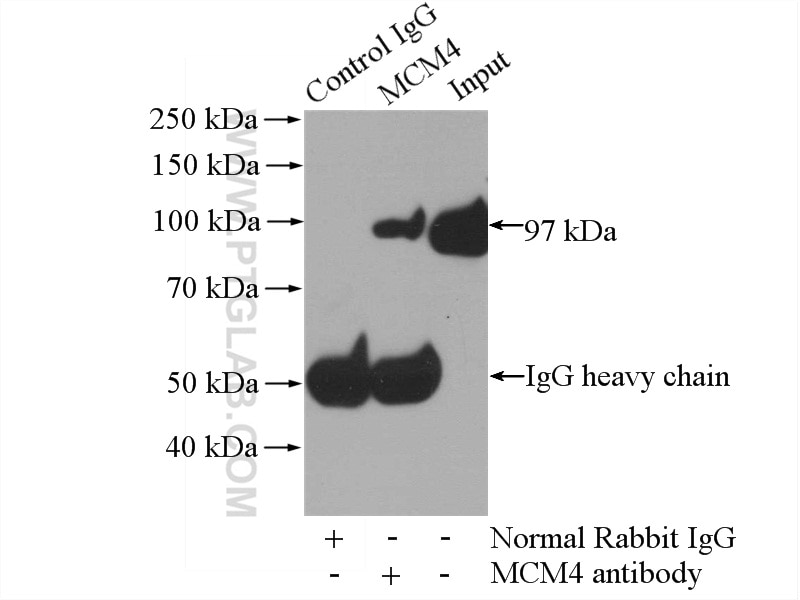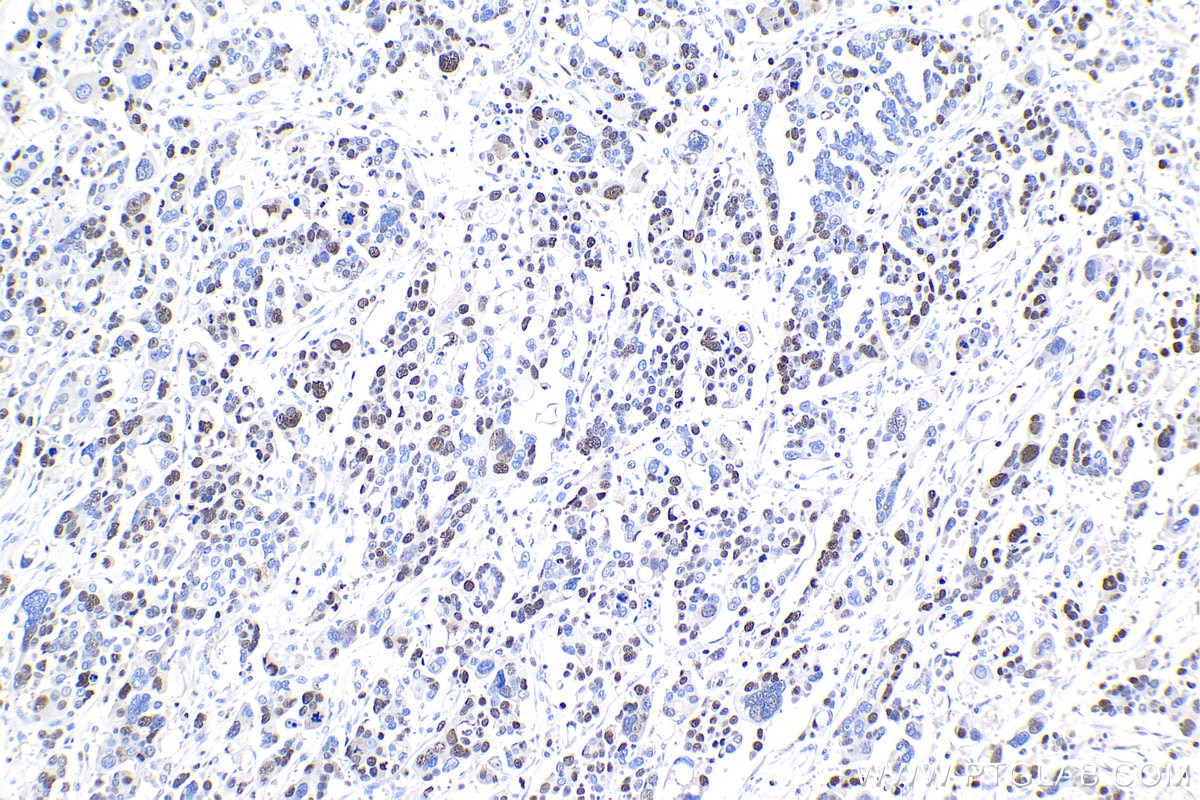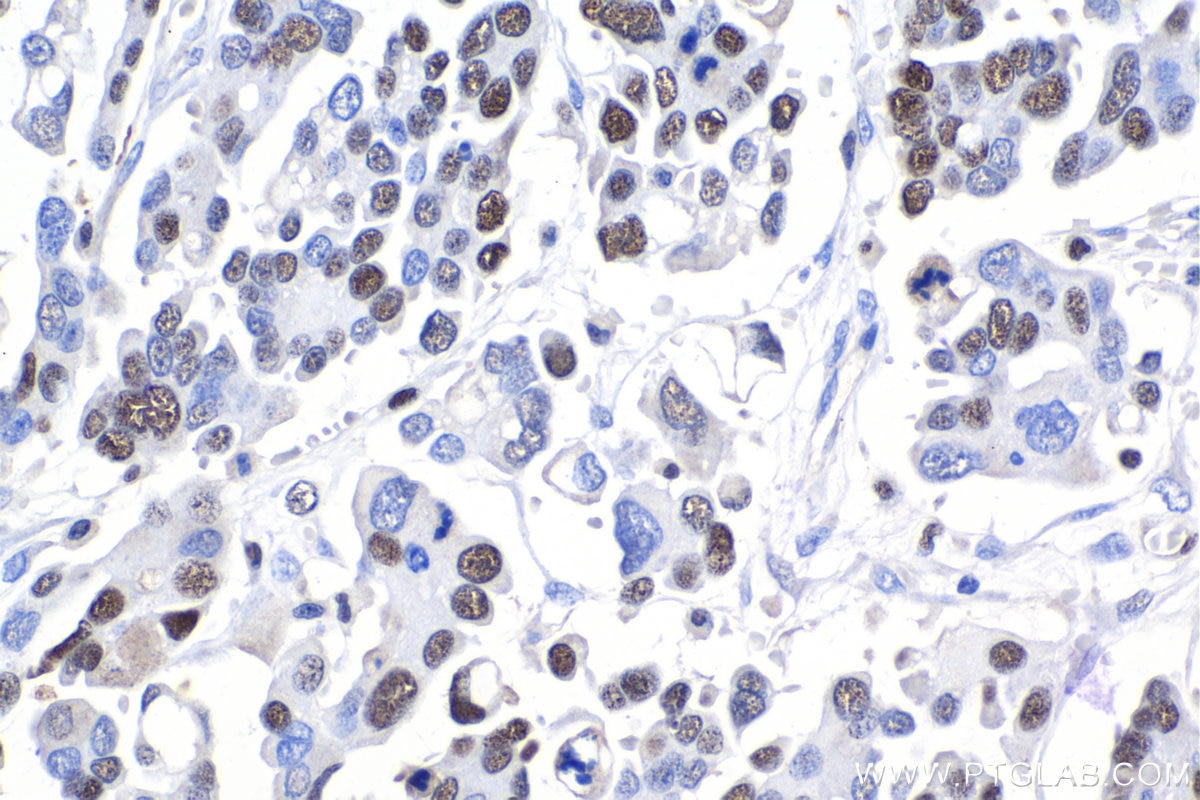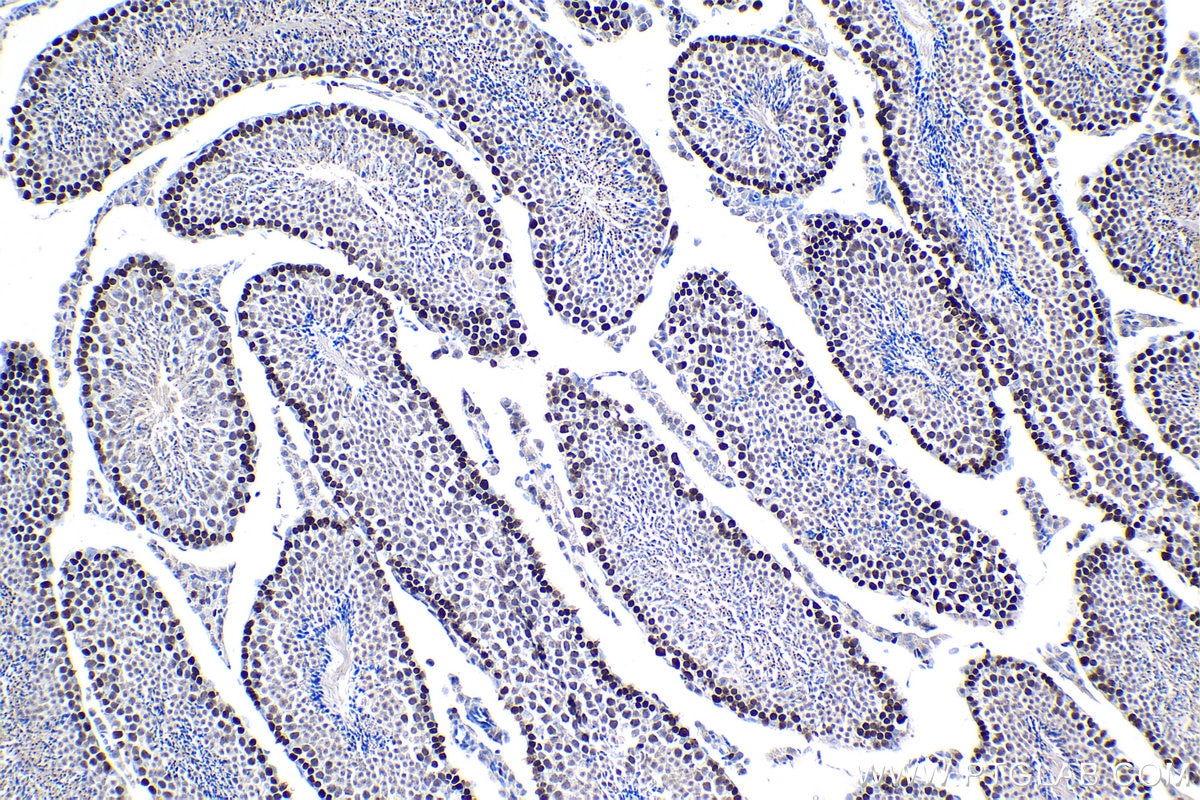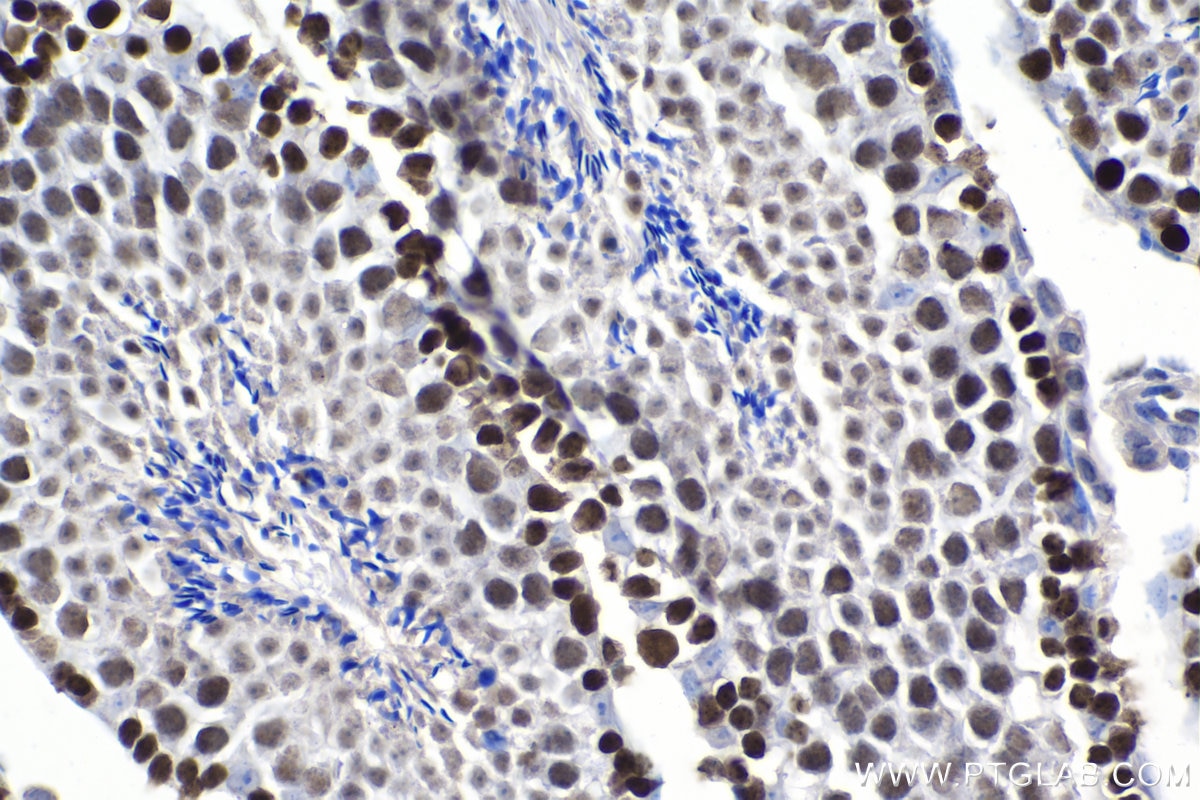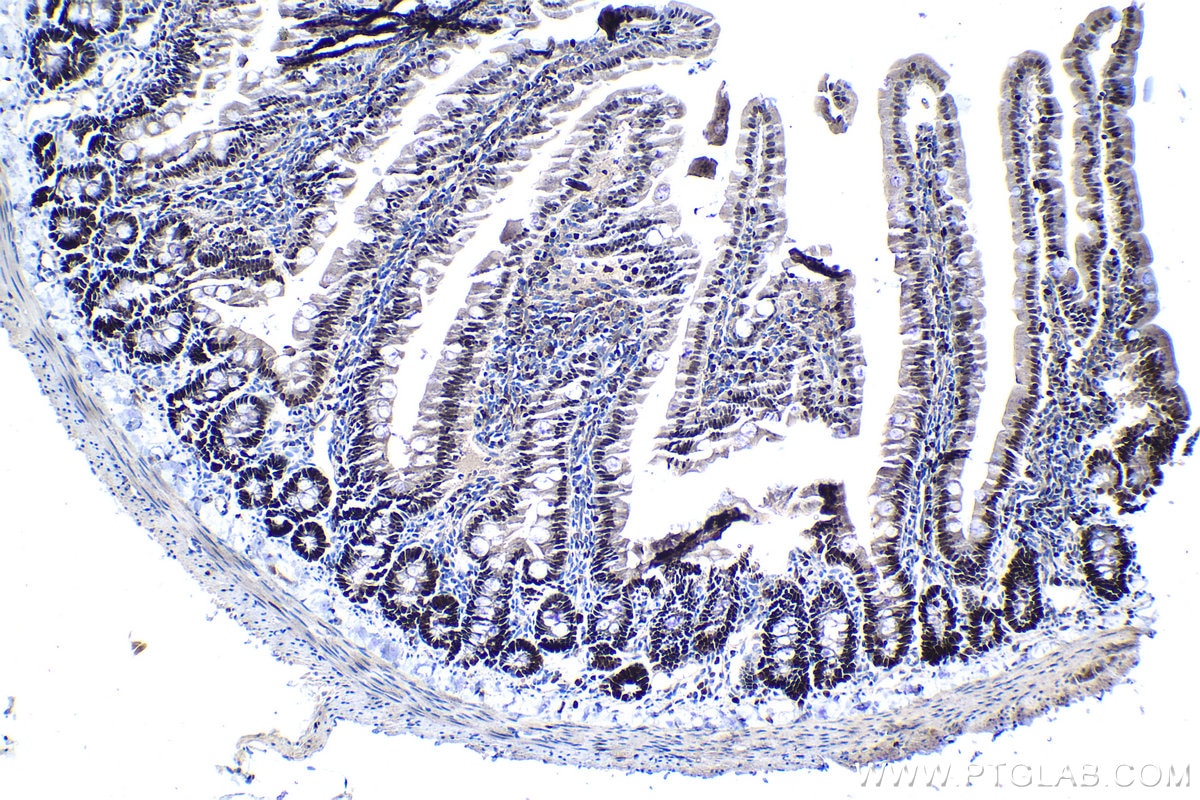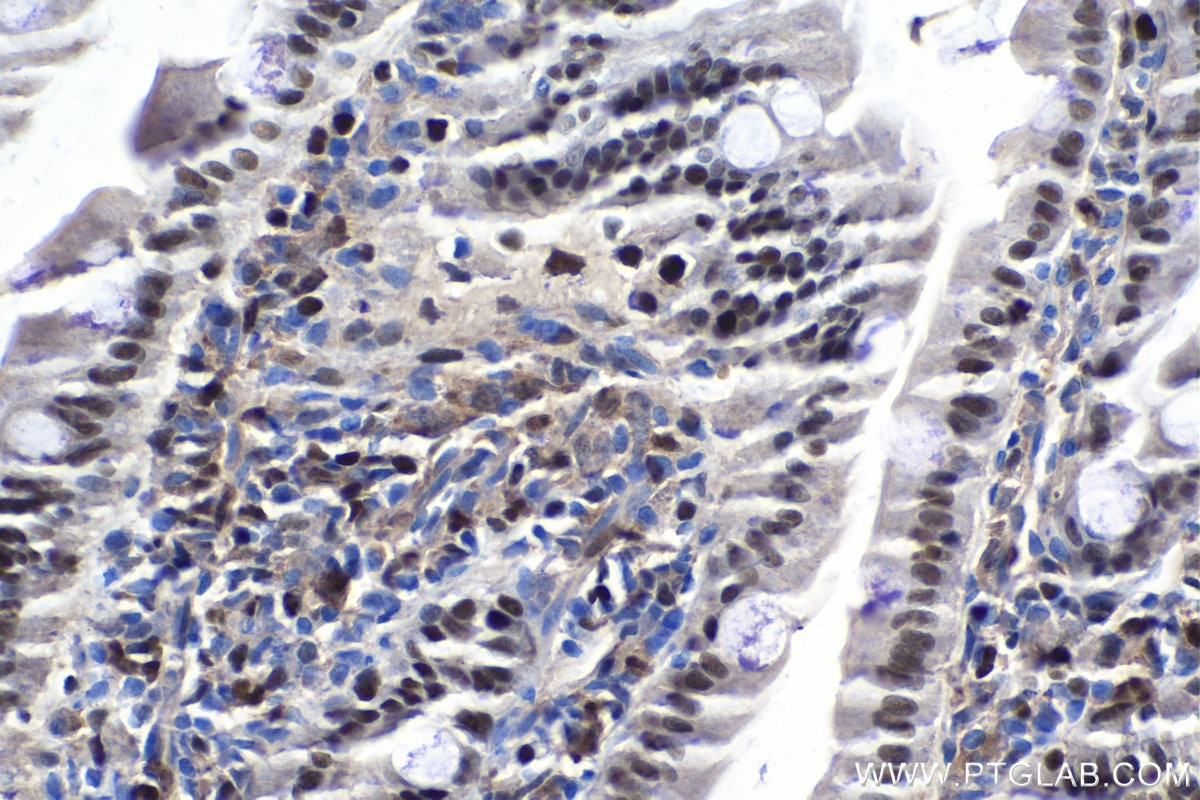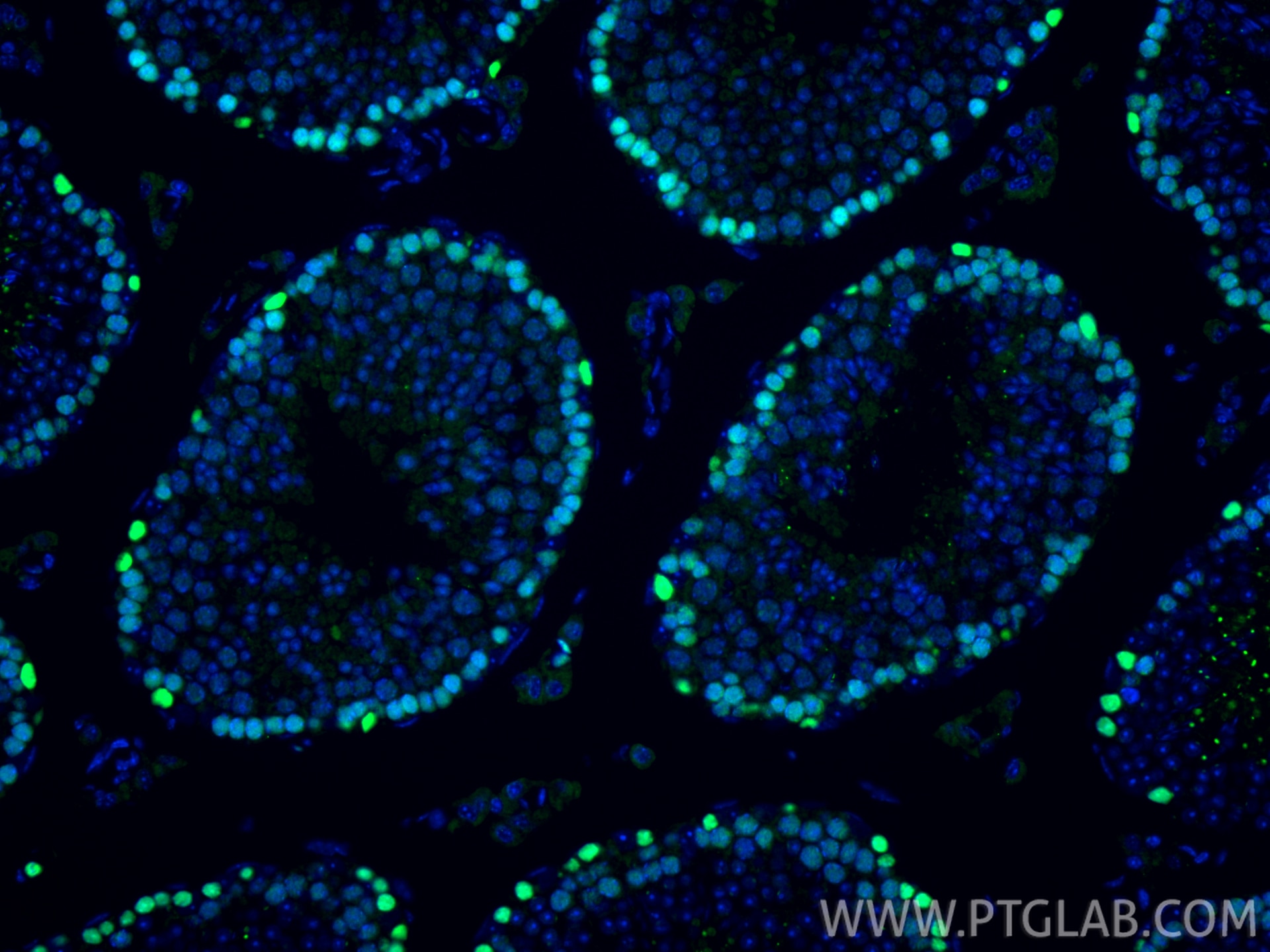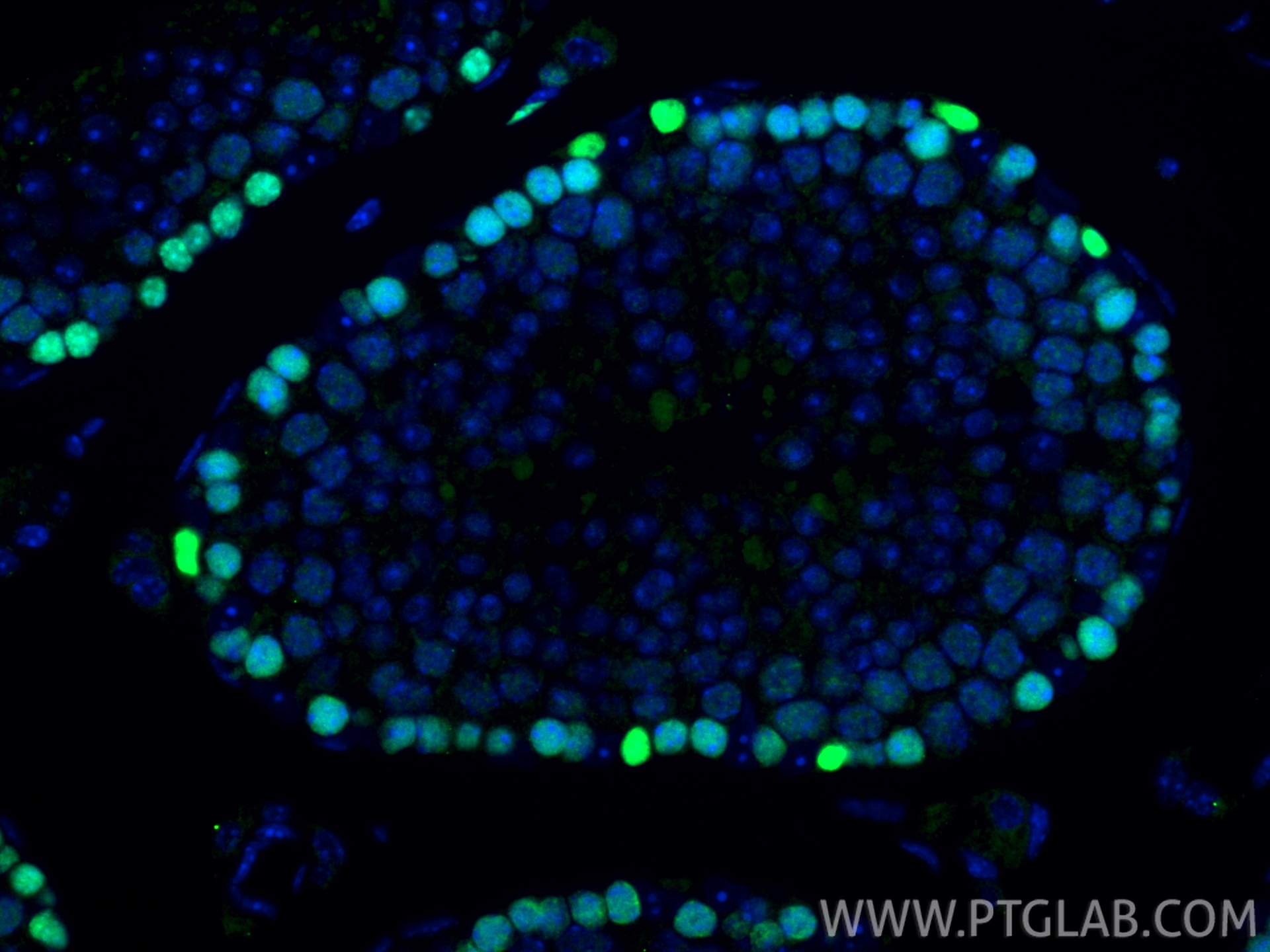Validation Data Gallery
Tested Applications
| Positive WB detected in | HeLa cells, HEK-293 cells, HL-60 cells, human liver tissue |
| Positive IP detected in | HEK-293 cells |
| Positive IHC detected in | human colon cancer tissue, mouse testis tissue, rat colon tissue Note: suggested antigen retrieval with TE buffer pH 9.0; (*) Alternatively, antigen retrieval may be performed with citrate buffer pH 6.0 |
| Positive IF-P detected in | mouse testis tissue |
Recommended dilution
| Application | Dilution |
|---|---|
| Western Blot (WB) | WB : 1:500-1:3000 |
| Immunoprecipitation (IP) | IP : 0.5-4.0 ug for 1.0-3.0 mg of total protein lysate |
| Immunohistochemistry (IHC) | IHC : 1:1000-1:4000 |
| Immunofluorescence (IF)-P | IF-P : 1:50-1:500 |
| It is recommended that this reagent should be titrated in each testing system to obtain optimal results. | |
| Sample-dependent, Check data in validation data gallery. | |
Published Applications
| WB | See 17 publications below |
| IHC | See 1 publications below |
Product Information
13043-1-AP targets MCM4 in WB, IHC, IF-P, IP, ELISA applications and shows reactivity with human samples.
| Tested Reactivity | human |
| Cited Reactivity | human, mouse |
| Host / Isotype | Rabbit / IgG |
| Class | Polyclonal |
| Type | Antibody |
| Immunogen |
CatNo: Ag3703 Product name: Recombinant human MCM4 protein Source: e coli.-derived, PGEX-4T Tag: GST Domain: 515-859 aa of BC031061 Sequence: SKSQLLQYVYNLVPRGQYTSGKGSSAVGLTAYVMKDPETRQLVLQTGALVLSDNGICCIDEFDKMNESTRSVLHEVMEQQTLSIAKAGIICQLNARTSVLAAANPIESQWNPKKTTIENIQLPHTLLSRFDLIFLMLDPQDEAYDRRLAHHLVALYYQSEEQAEEELLDMAVLKDYIAYAHSTIMPRLSEEASQALIEAYVDMRKIGSSRGMVSAYPRQLESLIRLAEAHAKVRLSNKVEAIDVEEAKRLHREALKQSATDPRTGIVDISILTTGMSATSRKRKEELAEALKKLILSKGKTPALKYQQLFEDIRGQSDIAITKDMFEEALRALADDDFLTVTGKT 相同性解析による交差性が予測される生物種 |
| Full Name | minichromosome maintenance complex component 4 |
| Calculated molecular weight | 863 aa, 97 kDa |
| Observed molecular weight | 97 kDa |
| GenBank accession number | BC031061 |
| Gene Symbol | MCM4 |
| Gene ID (NCBI) | 4173 |
| RRID | AB_2142293 |
| Conjugate | Unconjugated |
| Form | |
| Form | Liquid |
| Purification Method | Antigen affinity purification |
| UNIPROT ID | P33991 |
| Storage Buffer | PBS with 0.02% sodium azide and 50% glycerol{{ptg:BufferTemp}}7.3 |
| Storage Conditions | Store at -20°C. Stable for one year after shipment. Aliquoting is unnecessary for -20oC storage. |
Background Information
DNA replication licensing factor MCM4 (MCM4), also named Cdc21, acts as component of the MCM2-7 complex (MCM complex) which is the putative replicative helicase essential for 'once per cell cycle' DNA replication initiation and elongation in eukaryotic cells. The active ATPase sites in the MCM2-7 ring are formed through the interaction surfaces of two neighboring subunits such that a critical structure of a conserved arginine finger motif is provided in trans relative to the ATP-binding site of the Walker A box of the adjacent subunit. The six ATPase active sites, however, are likely to contribute differentially to the complex helicase activity.This antibody is a rabbit polyclonal antibody raised against the C-terminal 350 aa sequence of MCM4 protein.
Protocols
| Product Specific Protocols | |
|---|---|
| IHC protocol for MCM4 antibody 13043-1-AP | Download protocol |
| IP protocol for MCM4 antibody 13043-1-AP | Download protocol |
| WB protocol for MCM4 antibody 13043-1-AP | Download protocol |
| Standard Protocols | |
|---|---|
| Click here to view our Standard Protocols |
Publications
| Species | Application | Title |
|---|---|---|
Nat Struct Mol Biol A new vertebrate SUMO enzyme family reveals insights into SUMO-chain assembly. | ||
Adv Sci (Weinh) Topoisomerase I Inhibition in ETV4-overexpressed Non-Small Cell Lung Cancer Promotes Replication and Transcription Mediated R-Loop Accumulation and DNA Damage | ||
Biomaterials Biocompatible PEGylated Gold nanorods function As cytokinesis inhibitors to suppress angiogenesis. | ||
Phytother Res Activation of endoplasmic reticulum stress by harmine suppresses the growth of esophageal squamous cell carcinoma | ||
Oncotarget Lamin B2 binding to minichromosome maintenance complex component 7 promotes non-small cell lung carcinogenesis. | ||
Ecotoxicol Environ Saf The influence of phenolic environmental estrogen on the transcriptome of uterine leiomyoma cells: A whole transcriptome profiling-based analysis. |

